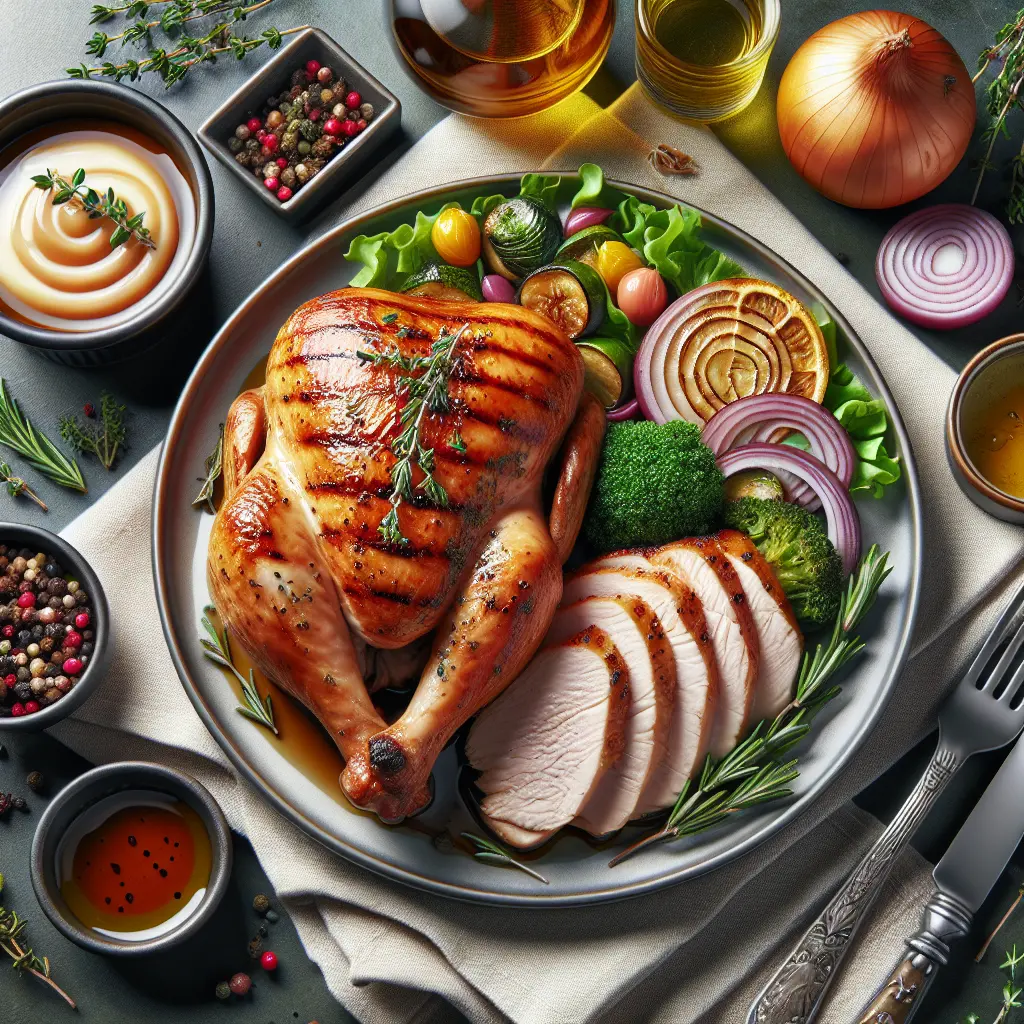Turkey: A Nutritional Powerhouse
Turkey is a lean and versatile poultry that has gained popularity for its nutritional value. A 4-ounce serving of cooked turkey provides:
- Calories: 214
- Protein: 32 grams
- Fat: 8.4 grams
- Carbohydrates: 0.1 grams
- Fiber: 0 grams
- Sugar: 0 grams
Turkey is an excellent source of protein, containing all the essential amino acids required for building and repairing tissues. It is also low in calories and fat, making it an ideal choice for those seeking a lean and healthy protein source.
In addition to its protein content, turkey is also a good source of vitamins and minerals, including:
- Vitamin B3 (Niacin): Essential for energy production and nerve function
- Vitamin B6 (Pyridoxine): Plays a role in amino acid metabolism and immune function
- Selenium: An antioxidant that protects against oxidative damage
- Phosphorus: Important for bone health and energy metabolism
Health Benefits of Turkey
Consuming turkey as part of a balanced diet offers several health benefits:
- Weight Management: The high protein content of turkey promotes satiety, helping you feel fuller for longer and reducing overall calorie intake.
- Muscle Building and Repair: Turkey provides all the essential amino acids necessary for building and repairing muscle tissue, making it beneficial for athletes and individuals looking to maintain muscle mass.
- Immune Support: Turkey contains vitamins and minerals that support immune function, such as vitamin B6, which is essential for the production of white blood cells.
- Cardiovascular Health: Turkey is a lean protein source that is low in saturated fat, making it a heart-healthy option. It also contains niacin, which has been shown to improve cholesterol levels.
- Bone Health: Turkey is a good source of phosphorus, which is essential for maintaining strong and healthy bones.
Culinary Uses of Turkey
Turkey is a versatile poultry that can be cooked in various ways. Some popular cooking methods include:
- Roasting: Whole turkeys are commonly roasted in the oven, seasoned with herbs and spices, for holiday celebrations and special occasions.
- Grilling: Turkey breasts or thighs can be grilled over medium heat, marinated in your favorite flavors, for a juicy and flavorful meal.
- Pan-frying: Turkey cutlets or ground turkey can be pan-fried quickly and easily, making them a convenient option for weeknight dinners.
- Slow-cooking: Turkey can be slow-cooked in a crockpot or Dutch oven with vegetables and broth for a tender and flavorful dish.
- Sautéing: Ground turkey can be sautéed with vegetables and spices to create a flavorful filling for tacos, burritos, or pasta dishes.
Conclusion
Turkey is a nutritious and versatile protein source that offers a wide range of health benefits. Its high protein content, low calorie count, and abundance of vitamins and minerals make it an excellent choice for a balanced diet. Whether roasted, grilled, pan-fried, slow-cooked, or sautéed, turkey can be enjoyed in various culinary preparations, providing a delicious and nutritious meal option.
How many calories are in Turkey?
Each 4 oz, cooked of Turkey contains 214 calories.
Turkey Nutritional Information
| Nutrient | Amount per 4 oz, cooked (113g) |
|---|---|
| Calories | 214 Calories |
| Protein | 32g |
| Fat | 8.4g |
| Saturated Fat | 2.4g |
| Cholesterol | 0.124mg |
| Carbohydrates | 0.1g |
| Dietary Fiber | 0g |
| Sugar | 0g |
| Sodium | 0.117mg |
| Potassium | 0.271mg |
| Calcium | 0.016mg |
| Iron | 0.0012mg |
